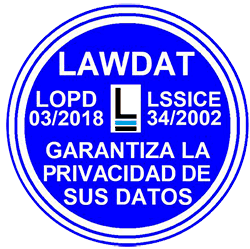Durante décadas, la política estuvo dominada por generaciones mayores que acudían masivamente a las urnas y marcaban el rumbo de las políticas públicas. Pero los tiempos están cambiando. Los jóvenes votantes están emergiendo como una fuerza poderosa: están transformando los debates, influyendo en las elecciones y obligando a los gobiernos a prestar atención a cuestiones que antes se pasaban por alto.
Desde la acción climática y la justicia social hasta los derechos digitales y la reforma económica, los jóvenes están desafiando las tradiciones políticas y exigiendo enfoques más frescos. Su influencia no solo crece, sino que está transformando la forma en que los políticos hacen campaña, cómo los partidos construyen sus programas y cómo evolucionan las democracias.
Este artículo analiza por qué los jóvenes votantes son importantes, cómo están cambiando los escenarios políticos en todo el mundo y qué significa esto para el futuro de la democracia.
El auge del poder del voto joven
Los números no mienten
A nivel mundial, las personas menores de 35 años representan uno de los mayores bloques de votantes. En muchos países, los Millennials y la Generación Z ya superan en número a los “baby boomers” en las urnas. A medida que las generaciones jóvenes alcanzan la edad de votar y las mayores disminuyen, el equilibrio de poder cambia.
- En Estados Unidos, la Generación Z y los Millennials representaron casi la mitad de los votantes elegibles en las elecciones de 2020.
- En Europa, la participación juvenil se disparó en las elecciones al Parlamento Europeo de 2019, inclinando la balanza a favor de los partidos verdes y progresistas.
- En África, más del 60% de la población tiene menos de 25 años, lo que otorga a los jóvenes un poder político sin precedentes.
Este peso demográfico por sí solo garantiza que los partidos políticos ya no puedan permitirse ignorar las voces jóvenes.
Qué les importa a los jóvenes votantes
Los votantes jóvenes comparten preocupaciones comunes más allá de las fronteras, influenciadas por la globalización, la tecnología y experiencias compartidas. Los temas clave incluyen:
- Cambio climático – Exigen acciones urgentes, desde energías renovables hasta empleos verdes.
- Justicia social – La igualdad racial, los derechos de género y los derechos LGBTQ+ dominan sus prioridades.
- Oportunidades económicas – La educación asequible, la vivienda y los salarios justos son fundamentales.
- Derechos digitales – La privacidad de los datos, la libertad en línea y la responsabilidad tecnológica son temas esenciales.
- Salud mental – Consideran que la atención sanitaria debe incluir el bienestar emocional.
A diferencia de generaciones anteriores, los jóvenes no quieren solo promesas: quieren planes concretos y rendición de cuentas.
La generación digital: redefiniendo las campañas políticas
Los jóvenes viven en el mundo digital, lo que ha obligado a los políticos a reinventar su forma de conectar con la gente.
- Campañas en redes sociales: plataformas como TikTok, Instagram o YouTube son ahora campos de batalla por la influencia. Un vídeo viral puede tener más impacto que un anuncio televisivo.
- Verificación y transparencia: los nativos digitales detectan rápidamente las incoherencias y exigen autenticidad.
- Movimientos en línea: hashtags y campañas digitales como #FridaysForFuture o #BlackLivesMatter movilizaron a millones, mostrando el poder del activismo juvenil en internet.
Los métodos tradicionales —folletos o visitas puerta a puerta— están perdiendo terreno frente a estrategias centradas en lo digital.
Rompiendo las líneas partidistas
Los jóvenes no siguen necesariamente las divisiones tradicionales entre izquierda y derecha. Tienden a priorizar los temas sobre la ideología.
- Muchos jóvenes conservadores apoyan políticas medioambientales antes consideradas “progresistas”.
- Muchos jóvenes progresistas promueven soluciones de libre mercado, como el emprendimiento verde.
En todo el espectro político hay una demanda común de integridad, diversidad e inclusión en el liderazgo.
Este enfoque centrado en los temas hace que la política sea menos predecible y más dinámica.
Casos destacados: el impacto juvenil en la política
Estados Unidos:
En 2020, la participación juvenil alcanzó su nivel más alto en décadas. La Generación Z y los Millennials fueron decisivos en estados clave, especialmente en temas como el clima y la justicia racial.
Europa:
El aumento del voto joven en 2019 impulsó a los partidos verdes y cambió la agenda climática de la Unión Europea.
Asia:
En países como Corea del Sur y Taiwán, los jóvenes son cada vez más activos en temas de derechos digitales y relaciones internacionales, influyendo en las políticas gubernamentales.
África:
Con una población tan joven, muchos países africanos están viendo surgir movimientos liderados por menores de 40 años. El movimiento nigeriano “Not Too Young to Run” es un ejemplo claro de cambio impulsado por la juventud.
Obstáculos que aún enfrentan los jóvenes votantes
A pesar de su creciente influencia, los jóvenes se encuentran con varios desafíos:
- Desilusión – Muchos sienten que los políticos no los representan.
- Dificultades económicas – Deudas estudiantiles, crisis de vivienda y empleos inestables limitan su participación.
- Acceso al voto – En algunos países, los procesos de registro son complejos y desalentadores.
- Falta de representación – Los parlamentos y congresos siguen dominados por políticos de edad avanzada.
Eliminar estos obstáculos es esencial para que las democracias aprovechen todo el potencial del electorado joven.
Juventud y cultura pop: cuando la política se mezcla con el estilo de vida
Los jóvenes no separan la política de la cultura. Sus valores políticos se reflejan en la música, el cine, los videojuegos e incluso en sus decisiones de consumo.
Por ejemplo:
- Artistas e influencers apoyan abiertamente a candidatos o movimientos.
- Los jóvenes boicotean marcas que no comparten sus valores.
- Las comunidades de videojuegos organizan debates políticos o actos de activismo virtual.
Incluso sectores alejados de la política, como el entretenimiento o los juegos en línea, sienten los efectos de los valores juveniles, ya que esta generación fusiona ocio, identidad y compromiso político como pocas antes.
Por qué los políticos deben escuchar
Ignorar a los jóvenes votantes no solo es arriesgado, es una estrategia perdedora. Quienes desprecian sus preocupaciones corren el riesgo de alejar al mayor bloque de votantes del futuro.
Los líderes que triunfan entienden que:
- Los compromisos climáticos no son opcionales, son una exigencia.
- La diversidad en el liderazgo no es simbólica, es una necesidad.
- La participación digital no es marketing, es el núcleo de la política moderna.
Los políticos que se adapten y se comprometan de verdad con las prioridades juveniles no solo ganarán votos: ganarán confianza duradera.
Una fuerza global: los jóvenes como movimiento compartido
Una tendencia fascinante es cómo los jóvenes de distintos países se influyen entre sí. Las redes sociales derriban fronteras y crean solidaridad global en temas como el clima, los derechos de las mujeres o la defensa de la democracia.
- Un activista estudiantil en Suecia puede inspirar protestas en Brasil.
- Un meme estadounidense puede iniciar debates políticos en Sudáfrica.
- Creadores de TikTok de un país pueden moldear narrativas en otro.
Este movimiento juvenil global convierte la política local en un diálogo internacional interconectado.
El futuro de la democracia con los jóvenes votantes
El futuro se perfila radicalmente distinto gracias al poder juvenil:
- Mayores expectativas: los políticos deberán ser auténticos, responsables y transparentes.
- Cambios de enfoque: el cambio climático, la salud mental y los derechos digitales ocuparán el centro del debate.
- Más líderes jóvenes: la nueva generación no solo votará, también se postulará para cargos públicos.
- Vínculos globales más fuertes: seguirán construyendo coaliciones internacionales.
En definitiva, los jóvenes no solo están cambiando la política: están transformando la democracia misma.
Conclusión: una generación que no será ignorada
Los tiempos en que se tachaba a la juventud de “apática” han terminado. Los votantes jóvenes de hoy están informados, son activos y están dispuestos a desafiar el statu quo. Están redefiniendo la política al fusionar activismo y cultura, exigir rendición de cuentas y usar herramientas digitales para amplificar su voz.
Para los políticos, el mensaje es claro: adaptarse o quedarse atrás.
Para las sociedades, la lección es esperanzadora: con los jóvenes al frente, el futuro de la política será dinámico, inclusivo y global.

















